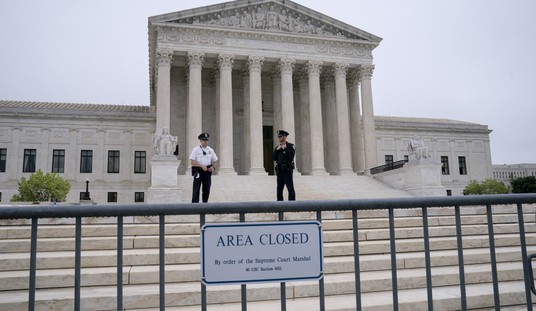I have had time now to briefly read Judge Hudson’s opinion ruling that the individual mandate portion of Obamacare is unconstitutional. My initial impression is that, while this ruling will widely be viewed as a victory for opponents of Obamacare, there are some potential problems with the opinion that may result in this opinion being a net loss down the road (where it will inevitably be decided by the Supreme Court in any case).
To begin with, Judge Hudson specifically refused to enjoin the Act’s enforcement pending appeal (a decision which will likely not be revisited by the Fourth Circuit whenever they get around to hearing the appeals). More importantly, Judge Hudson – improperly, in my view – severed the individual mandate from the Act as a whole. If that decision stands, it could well result in the wholesale destruction of private health insurance companies in the United States. It is also worth noting that this lawsuit did not address the potential capitation problems being litigated in the Florida lawsuit.
The largest legal hurdle the Virginia AG had to clear in arguing that the individual mandate was not within Congress’ Commerce Clause powers was avoiding the argument that this case was controlled by Wickard v. Fillburn, in which the Supreme Court upheld the application of a federal regulation imposed upon an individual wheat farmer. The Supreme Court in Wickard reasoned that although the particular wheat farmer at issue certainly had a de minimis effect on interstate commerce, the aggregate effect of all wheat farmers nationwide did have a “substantial effect” on interstate commerce, and therefore Congress had acted within their Commerce Clause powers in enacting the act. More recently, the Supreme Court reaffirmed Wickard with respect to individual marijuana growers in Gonzales v. Raich, which I suspect is the one judicial opinion in his career that Scalia would like to have back.
After Wickard, many observers predicted that no legislation would ever again be struck down as an impermissible exercise of Congress’ Commerce Clause powers. After all, if Congress is permitted to aggregate hundreds of millions of de minimis effects caused by the behavior of American citizens in order to clear the bar of a “substantial effect” on interstate commerce, it stands to reason that any activity, if repeated often enough by enough people, will have a “substantial effect” on interstate commerce and thus be within Congress’ power to regulate.
However, within the last 15 years, the Supreme Court issued a couple of surprising decisions which seemed to walk back that principle somewhat. In United States v. Morrison, the Court ruled that the Violence Against Women Act exceeded Congress’ Commerce Clause powers, because (essentially) the Commerce Clause was never intended to convey general police powers on the Federal Government. In United States v. Lopez, the Supreme Court struck down federal law prohibiting a person from knowingly carrying a firearm within a certain distance from a school for similar reasons. The essential teaching of Morrison and Lopez, when compared with Wickard and Gonzales, is that the Supreme Court would look much more favorably upon a law which purported to regulate “economic activity” as opposed to a law which essentially operated to enforce general police powers in the guise of regulating commerce.
It may strike you, upon reading this, that a challenge to the individual mandate portion of Obamacare would seem to fall much more into the “economic activity” pile than the statutes at issue in Morrison and Lopez, and indeed that is exactly what Sebelius argued in this case. Ultimately, however, the Court rejected this argument based on the premise that the individual mandate does not in fact regulate activity but instead penalizes inactivity:
In her argument, the Secretary urges an expansive interpretation of the concept of activity. She posits that every individual in the United States will require health care at some point in their lifetime, if not today, perhaps next week or even next year. Her theory further postulates that because near universal participation is critical to the underwriting process, the collective effect of refusal to purchase health insurance affects the national market. Therefore, she argues, requiring advance purchase of insurance based upon a future contingency is an activity that will inevitably affect interstate commerce. Of course, the same reasoning could apply to transportation, housing, or nutritional decisions. This broad definitionof the economic activity subject to Congressional regulation lacks logical limitation and is unsupported by Commerce Clause jurisprudence.
Indeed, Judge Hudson seems here to have hit on the crux of this particular battle. Clearly, Morrison and Lopez suggest that the Supreme Court is not willing to endorse the proposition that Congress can do literally whatever it wants in the name of affecting interstate commerce. What Lopez and Morrison do not clearly answer is the question, “How far is too far?” Judge Hudson believes that the individual mandate is too far. Ultimately, the Supremes will have the last word on this question, and I do not have a particularly good sense of which direction Anthony Kennedy will lean.
Somewhat shockingly, Sebelius argued forcefully that the penalty imposed by the individual mandate was not a penalty but was instead a tax, and therefore permissible under Congress’ taxation powers (which are hypothetically broader than Congress’ powers to regulate interstate commerce). This seems to me to have been a rather half-hearted argument and one which the Court disposed of with extreme prejudice – noting, after all, that if the Act works as intended, it will raise zero revenue because no one will pay the penalty. This is contained on pp. 25-37 of the opinion if you are interested, but in my view, this will not be where the fight is before the Supreme Court.
The problematic portion of this opinion is the end. Judge Hudson refused to enjoin enforcement of the Act, reasoning (defensibly, I suppose) that there are yet a few years before the Act’s provisions become enforceable, which should hypothetically provide time for the appeals process to play out. The more problematic portion involves Judge Hudson’s discussion of the severability of the Act. As we have discussed here before, Obamacare did not include a severability provision. Therefore, under traditional canons, if a portion of the Act is found to be unconstitutional, the entire thing should be thrown out (as the Supreme Court did with Gramm-Rudman-Hollings, but perplexingly did not with Sarbanes-Oxley).
Judge Hudson seems to have reasoned that he could not determine whether the Act as a whole would have passed without the individual mandate portion, despite Sebelius’ strenuous arguments throughout the case that the individual mandate is the central lynchpin which makes the Act make financial sense. Moreover, as a common sense matter, if the individual mandate provision is struck down and the pre-existing condition ban remains in place, every private insurance carrier in the country will be bankrupted in short order. One would assume this was not the intent of Congress when they passed the bill (although with this Congress, I suppose anything is possible). That fact notwithstanding, Judge Hudson unhelpfully severed the individual mandate “and directly-dependent provisions which make specific reference” to the individual mandate (whatever those might be) from the rest of the bill and left the remainder intact. As stated before, the main comfort we can take from this state of affairs is that this decision will likewise be subject to plenary review by the Supreme Court.













Join the conversation as a VIP Member